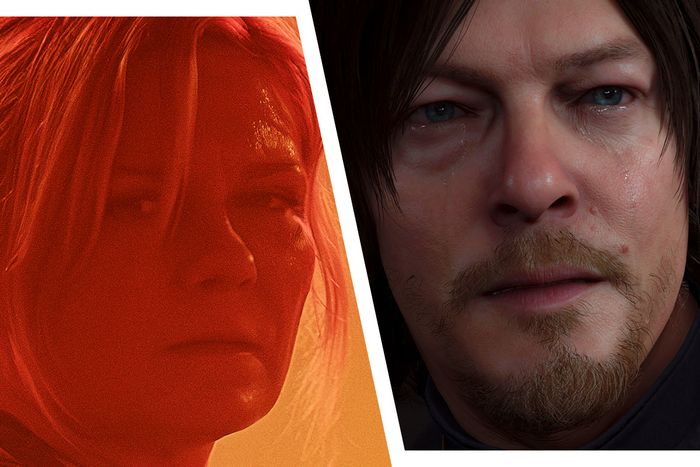
In October, a headline from the Wrap sent a chill down cinephile spines. “A24 Expands Strategy From Arthouse Gems to More Commercial Films,” the trade proclaimed, on the basis that an executive from the indie studio was reportedly looking to acquire “action and big IP projects.” Furthermore, A24 was apparently in the process of “deemphasizing the traditional character/auteur driven dramas” through which it had built its wildly successful brand. The reason? The brutal financial margins that come for almost everyone in arthouse film eventually. As an agent told the Wrap, “Auteur film labels never last unless they stay small … there’s only so long you can lose money.”
Though a studio source told the site that the company was merely “widening the aperture” of the type of projects they would consider, the story nevertheless alarmed many A24 fans, who worried the studio’s output would become less The Florida Project and more The Adam Project. The tone of the Wrap’s source, who sounded aggravated by the mere existence of Beau Is Afraid, also seemed to herald a shift away from the films that had made A24 A24. It was a depressing thought: If even the company selling $400 necklaces and a $5-a-month superfan club couldn’t make the math work, what hope was there for anyone else trying to produce good, original cinema?
Whether or not such anxiety was justified, last week gave us the first signs of what the next era of A24 will look like. On Wednesday, news broke that Benny Safdie had lined up his first solo directing effort at the studio, a biopic of MMA fighter Mark Kerr that will star Dwayne “the Rock” Johnson. The same day brought the trailer for Alex Garland’s Civil War, reportedly A24’s most expensive project ever at $50 million. And on Thursday, video-game designer Hideo Kojima announced that the company would adapt his critically acclaimed 2019 game Death Stranding into a live-action film.
As podcaster Vyce Victus noted, those three headlines coming in such quick succession might as well have been a marquee announcing the arrival of A24’s commercial phase. However, despite fans’ worst fears, it’s not Marvel that seems to be the model. It’s HBO.
Indeed, on a surface level, each project is almost comically HBO-y. You have Dwayne Johnson taking himself seriously, just like in Ballers. You have a post-apocalyptic video-game adaptation, just like The Last of Us. And in Civil War, you have an expansive genre exercise that’s aiming for the same mix of violent bloodletting, political scheming, and discourse-baiting once provided by Game of Thrones.
On a spiritual level, too, these projects seem animated by the ethos of 21st-century HBO. When I watched the Civil War trailer, I didn’t just think of Game of Thrones. I also remembered Rome, a wildly ambitious, wildly expensive project that was high-minded but also a little bit stupid (and proud of it). The model seems to be the one that fueled HBO’s rise a couple decades ago: Make stuff that’s bold, but not esoteric; tony, but not stuffy; starry, but not a vanity project. Of course, in the Zaslav era, even HBO is not exactly HBO anymore. But it’s worth noting that the premium-cable giant’s IP plays don’t preclude it from making smaller, more personal projects. On HBO’s current slate, The Last Of Us sits comfortably alongside a tiny gem like Somebody Somewhere.
Perhaps it’s better to say that A24 and HBO are both weathering the same storms and evolving the same way. Just as A24 recently announced plans for its first-ever sequel, a follow-up to the horror hit Talk to Me, so too has HBO dipped its toe into the franchise waters with And Just Like That … and House of the Dragon. And in the past few years, their outputs have come to almost mirror each other. The two companies collaborate on Euphoria, of course, and they each got into the Nathan Fielder business around the same time. (A handy way of telling The Rehearsal and The Curse apart: The one with the Safdie in it is the A24 one.)
Still, if you’re inclined to look for the dark side — and who isn’t — you could say that last week’s news heralds a future in which every premium-tier cultural product is an indistinguishable muddle of buzzy, vaguely prestige-y content. But if that’s the price for continuing to get films like Past Lives and Dicks: The Musical, I’ll gladly pay it.
Correction: A previous version of this article misstated the budget of Alex Garland’s Civil War.


